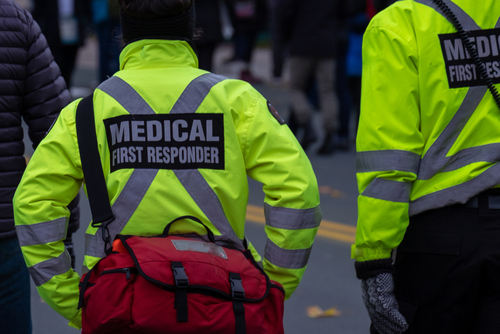
In a bicameral move, U.S. Reps. Dave Joyce (R-OH) and David Trone (D-MD) introduced the Protecting First Responders from Secondary Exposure Act last week to create a federal program providing local governments with resources to purchase containment devices for narcotics and offer training to first responders.
Companion legislation was introduced by U.S. Sens. Sherrod Brown (D-OH) and Chuck Grassley (R-IA).
“Fentanyl and other lethal substances are flowing into communities across Ohio at record rates, and first responders must be equipped with necessary protection to help ensure they are protected from these substances when responding to emergency situations,” Joyce said. “I am proud to introduce this bipartisan, bicameral legislation to support the health and safety of local law enforcement, and I encourage my colleagues in both the House and Senate to support this legislation.”
The legislation, previously introduced last Congress, is meant to increase help from the federal government for state and local governments surrounding lethal substances like fentanyl and allow them greater ability to safely store narcotics for evidentiary use. It would create the first federal program of its kind, supporting first responders at risk of exposure to fentanyl and similar substances through inhalation, ingestion, skin contact, needles, and more in their daily work.
Under such a program, state and local governments could apply for federal grants to purchase containment devices for storage and preservation. In theory, such devices could help law enforcement and first responders stay protected against potential exposure. It would amend the Omnibus Crime Control and Safe Streets Act of 1968 to allow for this.
“First responders are on the frontlines of our efforts to combat illegal fentanyl and other deadly narcotics,” Brown said. “Following our success in securing new screening devices to help prevent secondary exposure for federal law enforcement agents, I’m proud to introduce this bipartisan, bicameral legislation that will help give state and local first responders in Ohio the tools to protect themselves from these dangerous drugs.”
In addition to six other representatives who joined in support of the legislation, the bill has been endorsed by a number of first responder-affiliated organizations, including the: Fraternal Order of Police, International Union of Police Associations, International Association of Fire Fighters, National Organization of Black Law Enforcement Executives, National Tactical Officers Association, Sergeants Benevolent Association NYPD and Federal Law Enforcement Officers Association.




